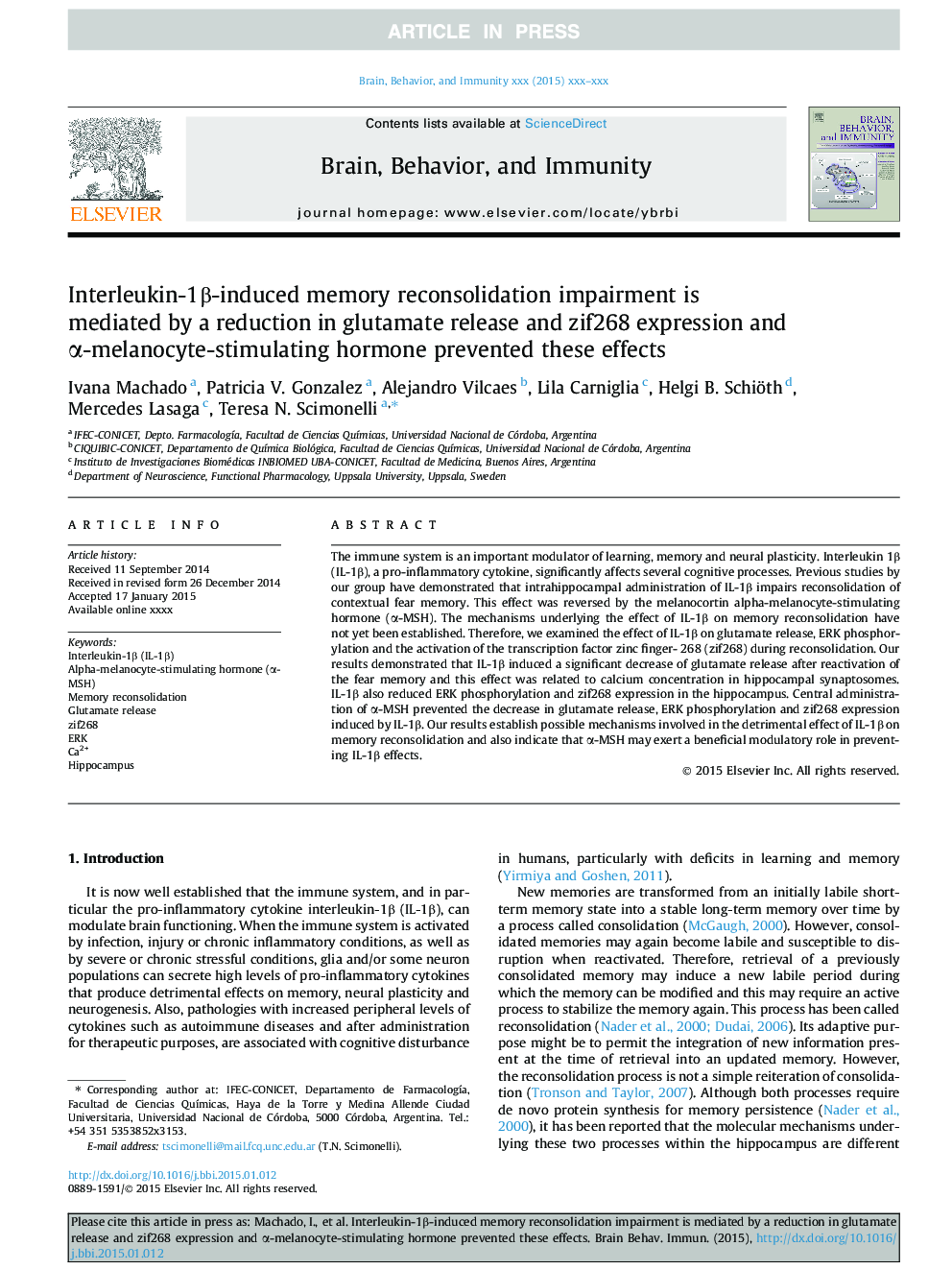| Article ID | Journal | Published Year | Pages | File Type |
|---|---|---|---|---|
| 7281167 | Brain, Behavior, and Immunity | 2015 | 10 Pages |
Abstract
The immune system is an important modulator of learning, memory and neural plasticity. Interleukin 1β (IL-1β), a pro-inflammatory cytokine, significantly affects several cognitive processes. Previous studies by our group have demonstrated that intrahippocampal administration of IL-1β impairs reconsolidation of contextual fear memory. This effect was reversed by the melanocortin alpha-melanocyte-stimulating hormone (α-MSH). The mechanisms underlying the effect of IL-1β on memory reconsolidation have not yet been established. Therefore, we examined the effect of IL-1β on glutamate release, ERK phosphorylation and the activation of the transcription factor zinc finger- 268 (zif268) during reconsolidation. Our results demonstrated that IL-1β induced a significant decrease of glutamate release after reactivation of the fear memory and this effect was related to calcium concentration in hippocampal synaptosomes. IL-1β also reduced ERK phosphorylation and zif268 expression in the hippocampus. Central administration of α-MSH prevented the decrease in glutamate release, ERK phosphorylation and zif268 expression induced by IL-1β. Our results establish possible mechanisms involved in the detrimental effect of IL-1β on memory reconsolidation and also indicate that α-MSH may exert a beneficial modulatory role in preventing IL-1β effects.
Related Topics
Life Sciences
Immunology and Microbiology
Immunology
Authors
Ivana Machado, Patricia V. Gonzalez, Alejandro Vilcaes, Lila Carniglia, Helgi B. Schiöth, Mercedes Lasaga, Teresa N. Scimonelli,
